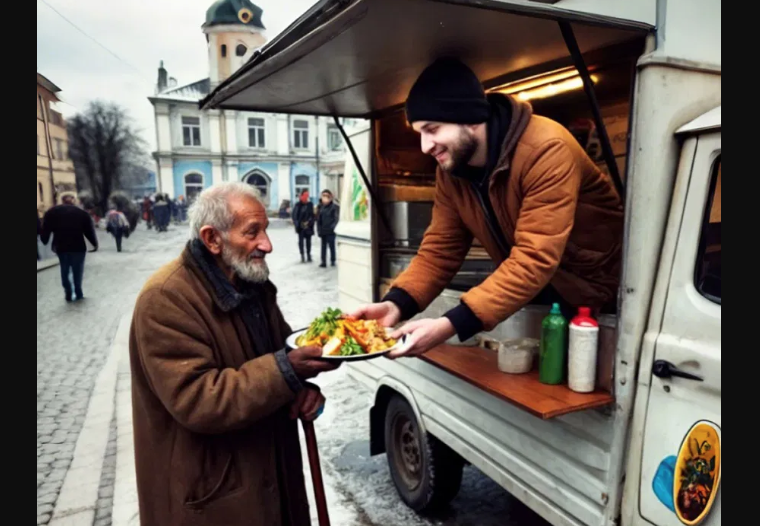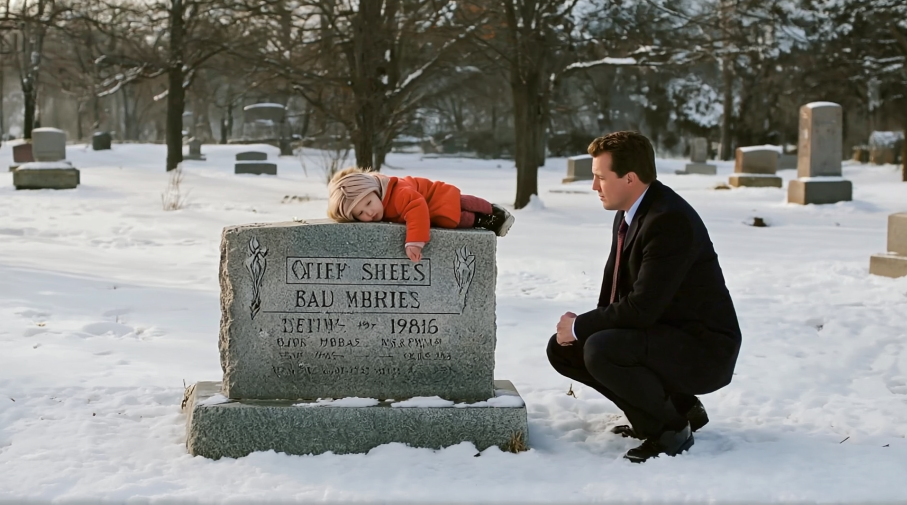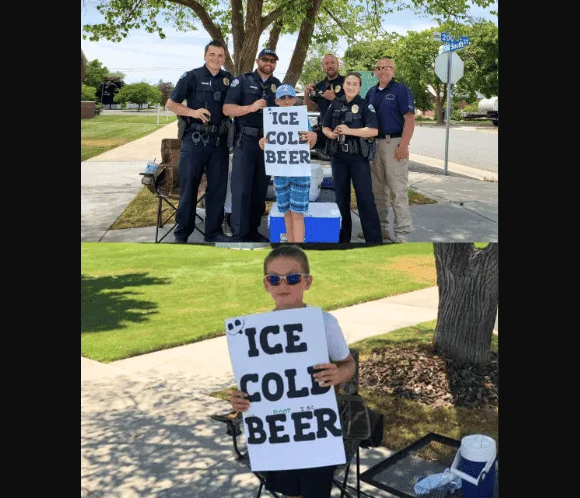Andrey, a gifted young chef with grand aspirations, yearned for boundless freedom. He longed to innovate, to experiment boldly, to challenge established norms. Yet, his position at a renowned restaurant—seemingly ideal with its generous salary, prestigious name, and clientele eager to pay any price for a meal—proved to be a confining snare.
“The menu lacks complexity,” he consistently heard from the owners whenever he presented his innovative concepts. His imaginative ideas and fervent desire for novelty held little sway with them. Andrey felt like a mere component in a vast mechanism that had long followed a predictable course. For some, this familiarity offered comfort, but not for him. He had no desire to merely replicate others’ recipes. He yearned to embrace risks, to conduct experiments, to deliver delightful surprises.
Following another tense exchange with the manager, he reached a pivotal decision. He could not persist if his work ceased to bring him joy. And though an uncertain path lay before him, this choice felt inherently correct.
The notion of launching his own mobile kitchen emerged serendipitously. One day, Andrey found himself strolling through a vibrant city fair. It buzzed with lively chatter, exuded cheerful energy, and was filled with an intoxicating blend of aromas, vendors’ calls, and sounds that harmonized into a rhythmic symphony. Then, his gaze was captivated by a line of food trucks, brightly colored and inviting, as if plucked from a cinematic scene.
In full view of eager patrons, dishes were being meticulously prepared: grills sizzled with enticing aromas, pots bubbled with flavorful concoctions, and cooks smiled warmly, exchanging playful banter with customers. Everything exuded a vibrant, authentic energy. There were no rigid mandates, no restrictive “you can’t do that” pronouncements. Only pure creativity and unbridled freedom. “That’s it!” Andrey thought to himself.
There, amidst the fair’s lively atmosphere, he felt a surge of inspiration. It was the first time in a considerable while. The food truck struck him as the ideal starting point: it offered mobility, required minimal initial investment, and most importantly—the direct opportunity to witness people’s immediate reactions. It was the very chance he had patiently awaited.
A month later, he acquired his first van. To describe its condition as merely “terrible” would be a significant understatement. It boasted a rusty exterior, doors that shrieked upon opening, and an interior that was literally disintegrating. But Andrey perceived something profound within this dilapidated vehicle.
He embarked on the project with immense fervor. The van received a vibrant orange repaint, designed to instantly capture attention. The slogan “Taste on Wheels” appeared prominently on its sides—a name Andrey conceived in mere minutes while sharing coffee with friends. One of his friends, a talented designer, sketched a captivating logo that now proudly adorned the doors.
“Let the vividness communicate my intentions: to create something extraordinary that will truly delight people,” he articulated.
The van transformed into his artistic canvas, and the kitchen nestled within—a dedicated space for boundless experimentation.
The most formidable challenge lay in curating the menu. Andrey recognized his imperative to distinguish himself. Uninspired hot dogs and generic shawarmas were simply beneath his culinary standards. He required concepts that would undeniably enthrall.
After countless sleepless nights and relentless culinary trials, his inaugural signature dishes emerged: Duck tacos infused with subtle Eastern spices. Light, Asian-inspired soups prepared fresh, directly before the guests’ eyes. Wholesome homemade desserts that evoked nostalgic childhood memories: for instance, ethereal eclairs filled with rich condensed milk cream. Each dish was meticulously conceived and executed. Andrey wasn’t merely preparing sustenance—he was meticulously crafting heartfelt emotions.
“Food should narrate a story. So that an individual tastes it and yearns to return,” he passionately declared.
However, not every aspect unfolded with the seamless perfection he had envisioned. On the very first day of operation, as he parked near the city park, the generator within his van unexpectedly malfunctioned. He was compelled to urgently locate an electrician to ensure everything was operational by evening.
On the second day, an unforeseen cold snap descended, resulting in a near absence of customers. Andrey stood inside the van, enveloped in a warm jacket, pondering whether he had perhaps erred by relinquishing his stable employment.
But on the third day, an incident occurred that rekindled his unwavering faith.
An elderly couple approached the van. They meticulously perused the menu for an extended period, then placed an order for two portions of tacos. Initially, they ate in comfortable silence, but then the woman suddenly beamed and remarked: “This is unequivocally the finest dinner we’ve enjoyed in years.”
These heartfelt words fully restored Andrey’s self-assurance. He realized that his arduous journey had not been in vain.
One afternoon, Andrey noticed an unusual visitor. It was an elderly gentleman with refined, distinguished facial features. He had been frequenting the area for several consecutive days but consistently refrained from placing an order. He would simply occupy one of the nearby tables, observe the passing crowd, and quietly depart after an hour or two.
The man carried himself with an upright posture, as if bearing the weight of a significant past. His attire appeared clean, yet noticeably worn. Seated at the table, he remained largely motionless, merely observing others who were eating, conversing, and laughing.
Initially, Andrey assumed he was merely a casual passerby. However, when the man returned for the third consecutive day, something stirred within Andrey’s heart. It seemed improbable that an aimless wanderer would regularly visit a mobile kitchen.
On the fourth day, Andrey’s curiosity got the better of him. He prepared a fresh plate of hot tacos, carried it over to the old man’s table, and gently placed it before him.
“Please, enjoy,” he offered kindly.
The man lifted his gaze to Andrey. His eyes held a blend of surprise and a touch of melancholy embarrassment.
“I… I don’t possess any money,” he replied softly, his fingers tightening around the edge of the table.
Andrey smiled reassuringly, dismissing the concern with a wave of his hand. “It’s complimentary. Just give it a try.”
The old man hesitated, as if disbelieving his ears, but then he tentatively picked up the fork. He took a bite. And then, something remarkable transpired: his eyes widened, he momentarily froze, as if a distant memory had been suddenly triggered.
“Incredible,” he exhaled after a contemplative pause.
Following that encounter, the old man gradually opened up. His name was Mikhail Arkadyevich. In the 1980s, he had held the esteemed position of head chef at one of the city’s most distinguished restaurants. Andrey had certainly heard of this establishment—a legendary venue renowned for its exclusivity. Mikhail proudly recounted how he personally crafted the menu and prepared meals for high-ranking dignitaries.
However, over the years, the restaurant eventually closed its doors. Everything underwent a transformation: culinary trends, prevailing tastes, and life itself. Mikhail lost his employment, then his residence, and consequently, the opportunity to resume his cherished profession.
“Age, health,” he explained, shrugging his shoulders stoically. “Time, you see, works against us.”
Andrey listened intently, his heart constricting with empathy. It was difficult to reconcile that the man seated before him had once cooked for the city’s elite.
“I simply adore watching people savor their food,” Mikhail confessed softly. “It transports me back to the days when I truly felt I belonged.”
The phrase “I belonged” deeply resonated with Andrey. He suddenly recalled his own struggles, how he had drifted between various jobs for several years, striving to pinpoint his true passion. And only now, with this mobile kitchen, did he experience genuine contentment.
“Mikhail Arkadyevich,” he proposed after a thoughtful silence. “Would you consider collaborating with me?” The old man regarded him as if he had heard something utterly fantastical.
“I…” he began, but then paused, searching for suitable words.
“Come on,” Andrey encouraged with a smile. “Just come and lend a hand. I’m in need of someone who truly understands exquisite cuisine.”
Mikhail Arkadyevich remained silent for a considerable duration. Then he uttered, quietly but resolutely: “I’ll give it some thought.” He soon assented to the offer.
Mikhail and Andrey immediately felt a profound connection from their very first day of working together. Mikhail not only contributed his invaluable recipes to the venture—he evolved into a true mentor, a genuine “master” who possessed culinary wisdom not from textbooks, but from a lifetime of experience. His approach was profoundly inspiring. Even seemingly simple actions, such as his masterful technique for chopping onions or his precise method for slicing meat, transformed into invaluable lessons.
“Cooking is love,” he declared with that confident wisdom capable of dispelling any reservations. “If you cook without pouring your soul into it, the food will not forgive you.”
Andrey listened with unwavering attention. It was crucial for him not merely to hone his cooking skills, but also to grasp the profound philosophy of food. Mikhail frequently shared captivating anecdotes: how he once prepared duck with orange sauce for a government minister, how he meticulously devised an unconventional menu for a celebrity wedding, or how he single-handedly salvaged a banquet by substituting a ruined dessert with his exquisite chocolate truffles.
“Food is not solely about the ingredients,” he stated, adding a delicate pinch of spices to the simmering broth. “It is about evoking emotions. It is about forging memories.”
Andrey was profoundly inspired. So inspired, in fact, that he was eager to explore every new culinary possibility. They commenced their experiments, initially with cautious steps. For instance, Mikhail proposed serving soups in edible bread bowls. This innovative idea immediately became an enormous success. Subsequently, they ventured further: crafting unexpected fillings for savory pies, incorporating unusual and exotic spices, and designing “reverse” salads where the dressing was presented separately in charming miniature jars.
And each time customers approached the van, it was as if a vibrant light ignited within Andrey’s heart. There was no greater satisfaction than witnessing someone sample a new dish and break into a genuine smile.
One evening, as the bustling work gradually subsided, an elderly couple approached the van. They stood before the menu, meticulously reading each item as if weighing a momentous decision. However, their expressions clearly betrayed a sense of bewilderment.
Mikhail immediately noticed their hesitation.
“Wait,” he instructed Andrey, preventing him from interjecting. A minute later, Mikhail emerged from the van carrying two steaming plates of hot soup. He gently placed them before the couple and offered a warm, compassionate smile. “This is on us. Please, enjoy your meal.”
The couple was initially taken aback, but then expressed their sincere gratitude. They ate slowly, savoring every spoonful. Andrey stood to the side, observing this scene as if it were a small, poignant play about simple, yet profound happiness.
“We should make this a more regular practice,” he remarked to Mikhail after the couple departed.
Thus, it began. Initially, once a week, they distributed food to retirees. Then, others facing difficult circumstances began to appear: single mothers, struggling students, individuals who simply yearned for a bit of warmth. Andrey was astonished to witness how these seemingly small acts of kindness transformed not only the lives of others but their own as well.
The “Taste on Wheels” van transcended its role as merely a kitchen. It evolved into a sanctuary where people arrived for nourishment but lingered for the inviting atmosphere. People understood that here, they would be listened to, offered support, treated to something comforting, and occasionally, simply given a kind and encouraging word.
Soon, word of their benevolent actions began to spread widely.
It all commenced with just a couple of appreciative customers. But with each passing day, their numbers swelled. Some learned of them through enthusiastic friends, others discovered mentions on the internet. Then, articles began to appear in local newspapers. Journalists genuinely admired not only the delectable food but also the profound good Mikhail and Andrey were doing for the community.
One evening, after the rush of customers finally dwindled, Mikhail settled onto the steps of the van. In his hand, a steaming cup of tea. “You know, Andrey,” he suddenly remarked, gazing thoughtfully at the setting sun. “You truly brought me back to life.”
Andrey sat down beside him.
“And you inspired me never to surrender,” he responded softly. They both understood that their relationship had evolved beyond that of mere business partners. Mikhail saw in Andrey a younger iteration of himself, and Andrey recognized a profound teacher who had helped him unearth not only his culinary prowess but also the invaluable capacity to positively impact the world around him.
And now, they shared a common objective. To establish a few more such mobile kitchens, to extend their assistance to even more individuals. In every city, in every region. But even years hence, they would fondly reminisce about the exact moment it all began.
With a humble plate of hot soup. And a sincere, unwavering desire to help others.




